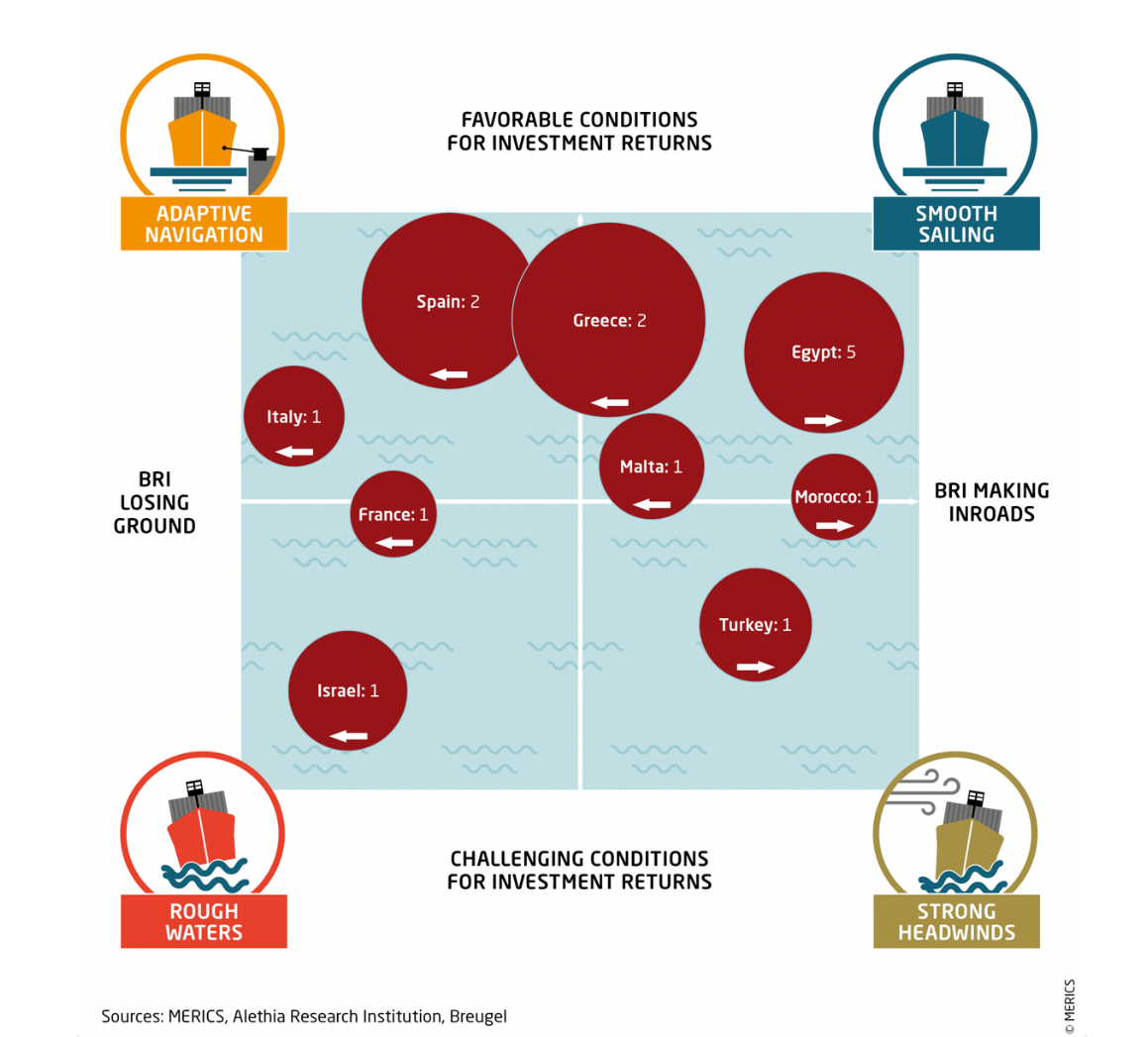
As China’s Belt and Road Initiative (BRI) enters its second decade with a new ten-year plan, reflecting its evolution from infrastructure investment to broader strategic goals. Our Director Clark Banach and MERICS Lead Analyst Jacob Gunther highlighted China’s deep involvement in global port networks, detailing how state-owned enterprises (SOEs) create dependencies and influence through Mediterranean and European ecosystems.
The BRI, while facing reduced financing, remains influential, leveraging earlier achievements and shifting focus towards green energy and telecoms. Case studies assess Chinese operations in ports across Greece, Spain, Algeria, and Israel, revealing strategic ambitions and outcomes. Future BRI priorities include addressing domestic overcapacity in green and telecom industries, fostering global partnerships, and adapting to geopolitical constraints.
China’s global port investments under its Belt and Road Initiative (BRI) aim to reshape trade networks by expanding its influence beyond traditional boundaries. These investments, strategically position Chinese firms in critical global logistics hubs, increasing bilateral trade with China while diverting trade from former partners. Analysis reveals that Chinese state-owned enterprises leverage port operations to consolidate influence, although infrastructure projects often bring only temporary benefits to host economies. Risks include dependency on Chinese-controlled networks, posing challenges for trade diversity and geopolitical stability. Balancing economic gains with national security concerns remains critical.
View the report at MERICS
Listen to the podcast with Clark Banach and Jacob Guenther
